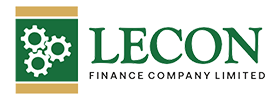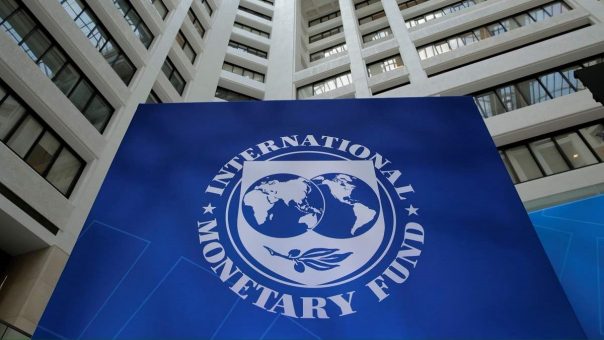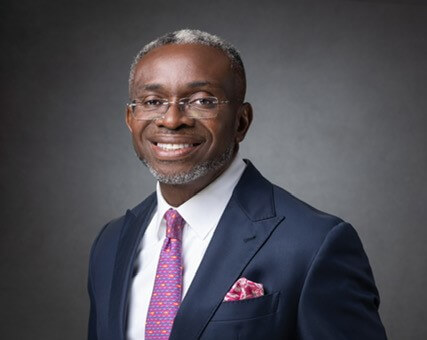Finance
LECON Finance disburses over N30b to companies to drive economic growth

LECON Finance Company Limited, a Central Bank of Nigeria (CBN)-licensed finance company, says it has disbursed over N30 billion in leases to businesses nationwide.
This achievement reinforces its pivotal role in powering Nigeria’s productive sectors and expanding the country’s leasing ecosystem.
“Since inception, we have financed over 2,000 projects across key industries including agriculture, healthcare, logistics, manufacturing, education, transportation, construction, and renewable energy. In the last five years alone, the company has supported more than 230 projects, enabling enterprises to acquire vital equipment and assets that enhance productivity, drive innovation, and create jobs,” it said in a statement.
Through its strategic leasing and financing solutions, LECON has emerged as a catalyst for inclusive and sustainable economic growth. The company focuses on sectors critical to Nigeria’s long-term prosperity — food and agro-processing, mining and solid minerals, renewable energy and climate, healthcare and pharmaceuticals, ICT and telecommunications, and women-led enterprises.
By making productive assets accessible to smallholder farmers, schools, healthcare providers, transport operators, and emerging entrepreneurs, LECON is closing the financing gap that limits the potential of underserved groups. These interventions are transforming local industries and boosting Nigeria’s productivity.
Reaffirming LECON’s dedication to making leasing available to businesses, the Managing Director/CEO, Mrs. Ebehiriere Ehi-Omoike, said “we are on a mission to democratize access to productive assets for businesses of all sizes to create real impact. These milestones reflect our dedication to building a resilient and inclusive financial ecosystem,”
As one of the earliest institutions in Nigeria’s leasing industry, LECON remains a cornerstone of Nigeria’s leasing ecosytem having been instrumental in legitimizing leasing as a credible and effective financing tool for large corporates and MSMEs alike.
By offering flexible, asset-backed financing, LECON empowers businesses to invest in modern equipment without the heavy burden of upfront capital costs. This model has strengthened confidence in leasing as a sustainable growth instrument, helping enterprises expand and thrive.
The company continues to shape Nigeria’s leasing landscape through thought leadership and active participation in the Equipment Leasing Association of Nigeria (ELAN), where it is a pioneer member.
LECON’s strong institutional credibility and financial strength anchors its reputation for sound governance, risk management, and operational discipline which has earned it a consistent “A+” credit rating from Agusto & Co., thus confirming its robust financial health and institutional resilience.
As a CBN-licensed finance company and a subsidiary of the Bank of Industry (BOI), LECON operates with full regulatory compliance and a clear mandate to deliver financial solutions that promote inclusive growth and national development.
LECON’s heritage spans more than five decades. Established in 1970 under Nigeria’s indigenization policy as the Commonwealth Development Corporation (CDC), it was later acquired as a wholly owned subsidiary of the Nigerian Industrial Development Bank Limited (NIDB) — the precursor to today’s Bank of Industry (BOI).
In 1989, it became the Leasing Company of Nigeria (LECON) to reflect its focus on leasing. In 2022, the pioneer institution was rebranded as a legacy institution with a modern vision to LECON Finance Company Limited, signaling a new era of transformation, growth, and broader financial inclusion.
LECON’s N30 billion lease portfolio represents more than financial success — it reflects tangible economic and social impact. Through its leasing operations, the company has facilitated job creation across key sectors, improved productivity for local enterprises, financial inclusion for underserved entrepreneurs and empowerment of women-led and youth-driven businesses
Its project portfolio covers agro and food processing, healthcare, petrochemicals, education, transport, logistics, manufacturing, construction, renewable energy, solid minerals, mining, and aviation with each project contributes to a more resilient, diversified Nigerian economy.
As Nigeria continues to pursue economic diversification, LECON remains committed to driving inclusive and sustainable financing. The company’s mission is to enable businesses — large and small — to access the productive assets they need to grow, compete, and create long-term value.
Finance
IMF seeks autonomous central banks in stronger global system

The International Monetary Fund (IMF) has called on governments worldwide to build stronger institutions and ensure the independence of their central banks.
At the IMF Annual Meetings in Washington, DC, IMF Managing Director Kristalina Georgieva spoke yesterday at the Civil Society Town Hall Programme, part of the pre-opening events at the ongoing World Bank/IMF Annual Meetings.
The IMF chief also played down the impact of US tariffs on many world economies, saying the effect of the tariffs has decreased compared with the position at the April 2025 meetings.
She added that the private sector is currently much stronger than it was in April, signalling improvement in global economic performance.
She further acknowledged the devastating impact of high debt levels on world economies, urging countries to pursue more growth to reduce the burden of debt on their economies.
“The impact of tariffs is not as dramatic as we feared. US tariffs are lower today than they were last April.
“Many countries have chosen not to retaliate and are avoiding tit-for-tat actions, which is protecting world trade.
“There should be concerted efforts to bring debts down and support global economic recoveries, even as there is a need to identify pathways to resolving the debt crisis,” she said.
Georgieva called on countries to grow out of debt and create more development opportunities.
Reflecting on global progress over the decades, she said: “The average person today is much better off than, say, 30 years ago, but the averages conceal deep undercurrents of marginalisation, discontent, and hardship.
“Many people in many places—especially the young—are taking their disappointment to the streets: from Lima to Rabat, from Paris to Nairobi, and from Kathmandu to Jakarta, all are demanding better opportunities.”
She noted that the most important discussions at the Annual Meetings will focus on the global economic impact of these transformative forces and the policy turbulence we are experiencing.
“How is the world economy coping? Short answer: better than feared, but worse than we need.
“When we met in April, many experts—not us—predicted a U.S. recession in the near term, with negative spillovers to the rest of the world.
“Instead, the U.S. economy, as well as many other advanced and emerging markets and some developing countries, have held up.
“As our World Economic Outlook will explain next week, we see global growth slowing only slightly this year and next. All signs point to a world economy that has generally withstood acute strains from multiple shocks,” she said.
According to her, the resilience of global economies is attributable to improved policy fundamentals, private sector adaptability, less severe tariff outcomes than initially feared—for now—and supportive financial conditions—as long as they hold.
Finance
Economic recovery: IMPI predicts 17% fall in inflation

• Urges CBN to loosen grip on rates
Nigeria could end the year with its lowest inflation in nearly a decade, according to the Independent Media and Policy Initiative (IMPI), which has projected headline inflation to drop to 17 per cent by December 2025.
In its latest policy statement signed by Chairman Dr. Omoniyi Akinsiju, the think tank noted that the economy is experiencing one of its rare periods of disinflation, marked by five consecutive months of inflation decline.
The group, however, insists the Central Bank of Nigeria (CBN) must match this rare economic momentum by easing its restrictive monetary stance.
It urged the CBN’s Monetary Policy Committee (MPC) to begin easing the benchmark interest rate to consolidate gains.
“Empirically speaking, the Nigerian economy is now in a disinflationary dispensation. Nigeria recorded a rare disinflation in 2025, with inflation falling from 24.5 per cent in January to 20.12 per cent in August, the sharpest mid-year slowdown in over a decade”, IMPI said.
According to the group, three key factors have shaped the current inflation deceleration: the Central Bank’s decision to hold rates at 27.50 per cent, which curbed credit demand and speculative forex activities; relative stability in the foreign exchange market due to higher inflows from oil, remittances, and non-oil exports; and improved food supply following better harvests and calm in food-producing regions.
With inflation already below the Central Bank’s 21 per cent target for the year, IMPI said the momentum could push the figure down to 17 per cent by December, close to the Federal Government’s 15 per cent goal.
“Attaining this target has huge microeconomic implications,” it stressed, projecting that the MPC may cut the Monetary Policy Rate by at least 50 basis points at its next meeting and by as much as 200 basis points before year-end.
It also recommended lowering the Cash Reserve Ratio from 50 per cent to 35 per cent by December, saying this would ease the cost of credit, spur business expansion, and support job creation.
Beyond monetary policy, IMPI highlighted the recovery of Nigerian firms after steep losses triggered by the Federal Government’s 2023 decision to float the naira.
Following a sharp depreciation that saw the currency fall from N460/$ in mid-2023 to N1,535/$ by the end of 2024, several consumer goods companies—including BUA Foods, Cadbury, Nigerian Breweries, and Nestlé Nigeria—reported combined losses of over N418 billion in Q1 2024.
The think tank said the return of relative exchange rate stability, coupled with cost restructuring, has since reversed the trend.
“By Q1 2025, the same companies posted a combined pre-tax profit of N289.8 billion, and by Q2 2025, they had returned to a combined profit of N264 billion,” it noted.
IMPI argued that the sharp turnaround underscored how policy stability and market adjustments can restore investor confidence.
“This captures the context in which domestic and global commentators have returned a verdict of stability for the Nigerian economy,” the statement concluded.
Finance
Afrinvest predicts 21.95% GDP growth, N1,500/$ for $1tr economy

.Banks raised N2.5tr new capital in H1 2025
Nigeria’s rebased Gross Domestic Product (GDP) needs 21.95 per cent growth at N1,500 per dollar exchange rate to achieve $1 trillion economy target by 2031, Afrinvest West Africa Limited, an investment and research firm has predicted.
The prediction is contained in its 20th Nigeria Banking Sector Report 2025 titled: ‘ACT-BOLD: Beyond a Trillion Dollar Economy’ presented at an event marking its 30 years of operations, in Lagos.
According to the investment and research firm, at rebased GDP nominal size of N372.8 trillion, Nigeria requires a minimum yearly growth rate of 21.9 per cent to attain $1 trillion economy valuation by 2031.
According to the Afrinvest’s report, an exchange rate of N1,500/$1 or a much stronger exchange rate at a slower growth rate was predicted to be required to attain the GDP size milestone.
The report indicated that despite the President Bola Tinubu administration’s confidence that the banking industry will support the $1 trillion economy target realisation, there was a need to address longstanding impediments that constrain broad-based growth potential. Without such intermediation, it added, banks would only deliver, at best, uneven and subpar growth across a few services-based sectors, while the overall economy continues to grow at a slow pace.
The report unveiling, which attracted many financial sector stakeholders and market leaders, also highlighted the role of monetary policy tightening in achieving subdued inflation rate figures, restoring market confidence and stabilising the forex rate.
The report also noted that monetary policy under the Olayemi Cardoso-led Central Bank of Nigeria (CBN) showed successive hikes in the benchmark rate by a cumulative of 875 basis points to 27.5 per cent between February 2024 and November 2024, and this, alongside other variables, was left unchanged throughout the first half of this year.
It showed that the ongoing recapitalisation of the banking industry had shown that several banks initiated or completed a capital raise to strengthen their buffer.
“As of mid-2025, our estimate suggests that banks have collectively raised over N2.5tn through rights issues, public offerings and private placements,” it noted.
Also, at least four lenders – Access Corporation, Zenith Bank, Ecobank and Lotus Bank – reportedly met the new capital thresholds, while several others are on track to meet the June 2026 deadline.
“A few institutions are exploring merger and acquisition options as a compliance strategy. Overall, the growth of the banking sector (proxied by financial institution GDP) has remained resilient, clearing at 15 per cent in real terms in the first quarter of 2025 and ranking among the top 10 contributors to the GDP in the period,” the report said.
Speaking during the unveiling, the Group Managing Director, Afrinvest West Africa Limited, Dr Ike Chioke, described the company’s 30 years of operations as a journey of resilience, innovation, and leadership meant to shape Nigeria’s financial markets. He said the 30-year journey unfolded against a backdrop of shifting global and domestic political, macroeconomic and capital markets realities.
“From the return to democracy in 1999, to the dot-com bust of 2000 to 2002, Nigeria’s banking reforms between 2004 and 2005, the global financial crisis of 2007 to 2009, the oil price crash of 2014 to 2016 and, more recently, the COVID-19 shock of 2020, as well as the global inflation surge of 2021 to 2023, each era tested resilience but also opened new opportunities.
“Afrinvest has grown through these cycles, always adapting, always innovating,” Chioke stated.
He said the Banking Sector Report, first published in 2006, remained a trusted compass for policymakers, investors and financial institutions navigating the changes in Nigeria’s economy.
According to him, each of the past 20 editions provides clarity in moments of uncertainty and ambition in times of reform. He described the 20th edition as both a call to action and a framework for Nigeria’s growth.
The Chairman, Afrinvest West Africa Limited, Donald Lawson, who was represented by Professor of Economics, University of Nigeria, Nsukka and Co-Chair, Nigerian Economic Summit Group (NESG) National Advisory Council, Osita Ogbu, said that great institutions were not accidents of history but products of vision, courage and the ability to adapt to changing times.
Lawson said the 30 years of Afrinvest were not simply the story of a financial institution but a reflection of a story of vision, leadership, resilience and an unwavering commitment to excellence in institution building.
“It is also a moment of gratitude for the people who built this institution brick by brick. Afrinvest is a testimonial to hard work, discipline, character and fortitude. It is a classic Nigerian story of never-say-die!
“Our story began in 1995, when Godwin Obaseki founded Securities Transaction and Trust Company Limited, known as SecTrust, here in Lagos. In the same year, Phillip Iheanacho established Afrinvest Limited in London. In the turbulent climate of the mid-1990s, it took extraordinary courage to launch professional stockbroking firms. Yet Godwin, Phillip and their colleagues dared to do so, building two separate firms defined by professionalism and integrity,” Lawson added.
From a single Lagos office, Afrinvest now operates across five major Nigerian cities: Lagos, Port Harcourt, Abuja, Onitsha and Kano.
“Over the years, we have not only built markets, evidenced by landmark transactions within and beyond Nigeria’s borders; we have built innovative platforms and investment instruments that continue to redefine access to opportunities for our clients,” he added.
-

 Art & Life9 years ago
Art & Life9 years agoThese ’90s fashion trends are making a comeback in 2017
-

 Entertainment8 years ago
Entertainment8 years agoThe final 6 ‘Game of Thrones’ episodes might feel like a full season
-

 Art & Life9 years ago
Art & Life9 years agoAccording to Dior Couture, this taboo fashion accessory is back
-

 Business9 years ago
Business9 years agoThe 9 worst mistakes you can ever make at work
-

 Entertainment9 years ago
Entertainment9 years agoThe old and New Edition cast comes together to perform
-

 Sports9 years ago
Sports9 years agoPhillies’ Aaron Altherr makes mind-boggling barehanded play
-

 Entertainment8 years ago
Entertainment8 years agoMod turns ‘Counter-Strike’ into a ‘Tekken’ clone with fighting chickens
-

 Entertainment9 years ago
Entertainment9 years agoDisney’s live-action Aladdin finally finds its stars





